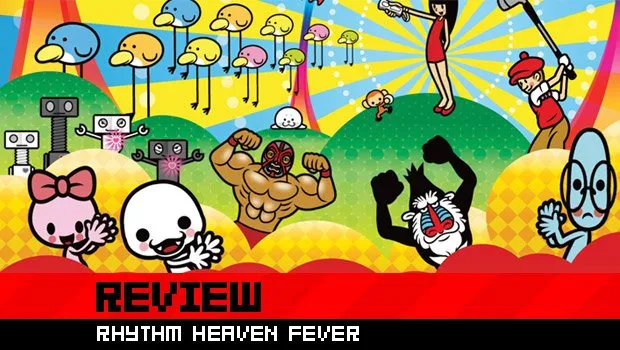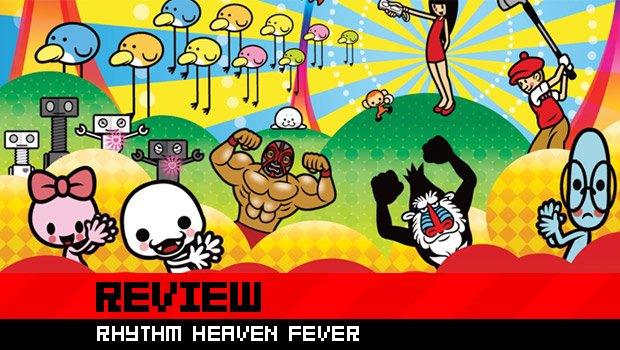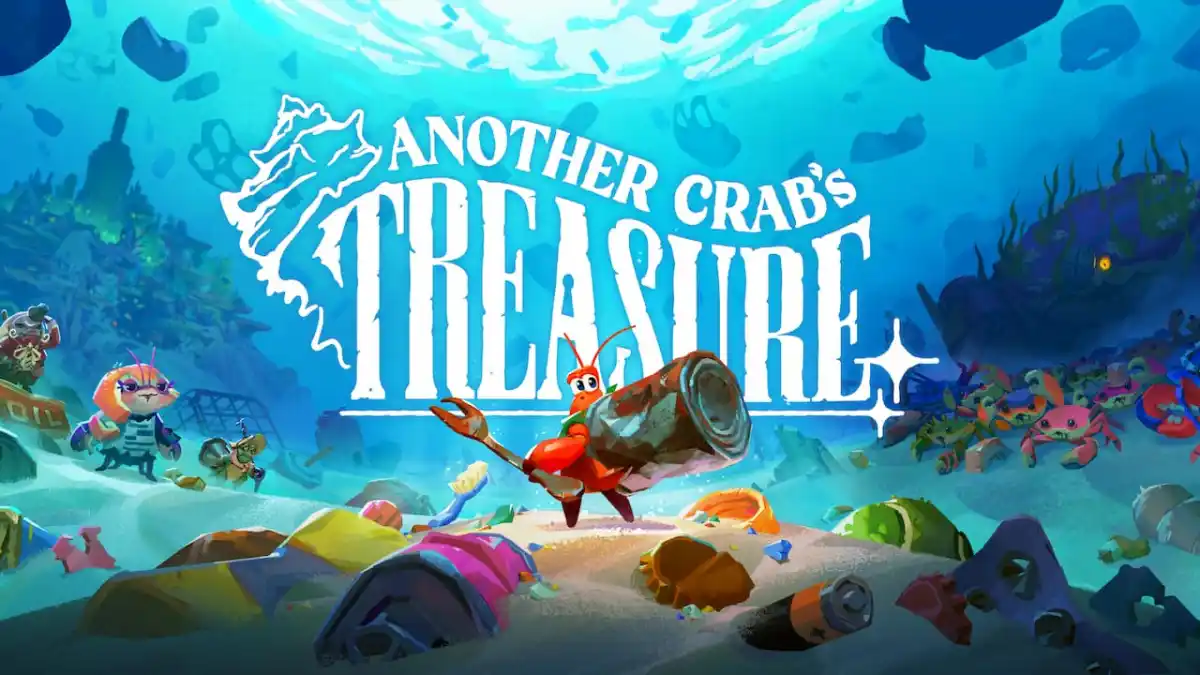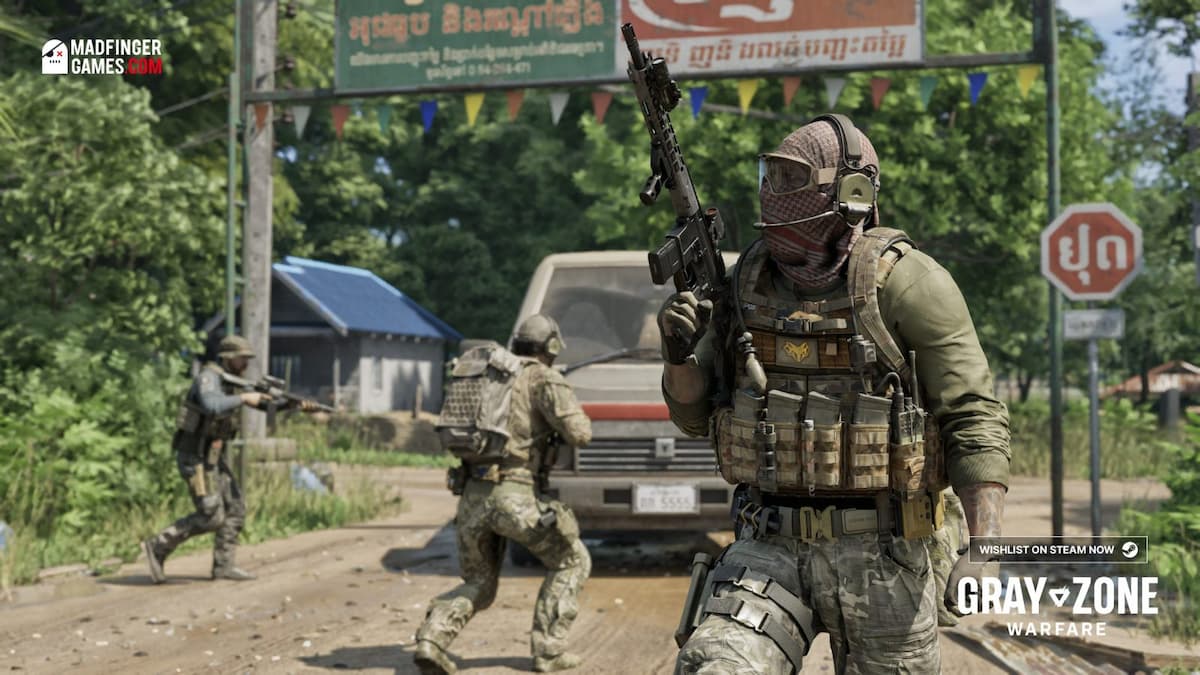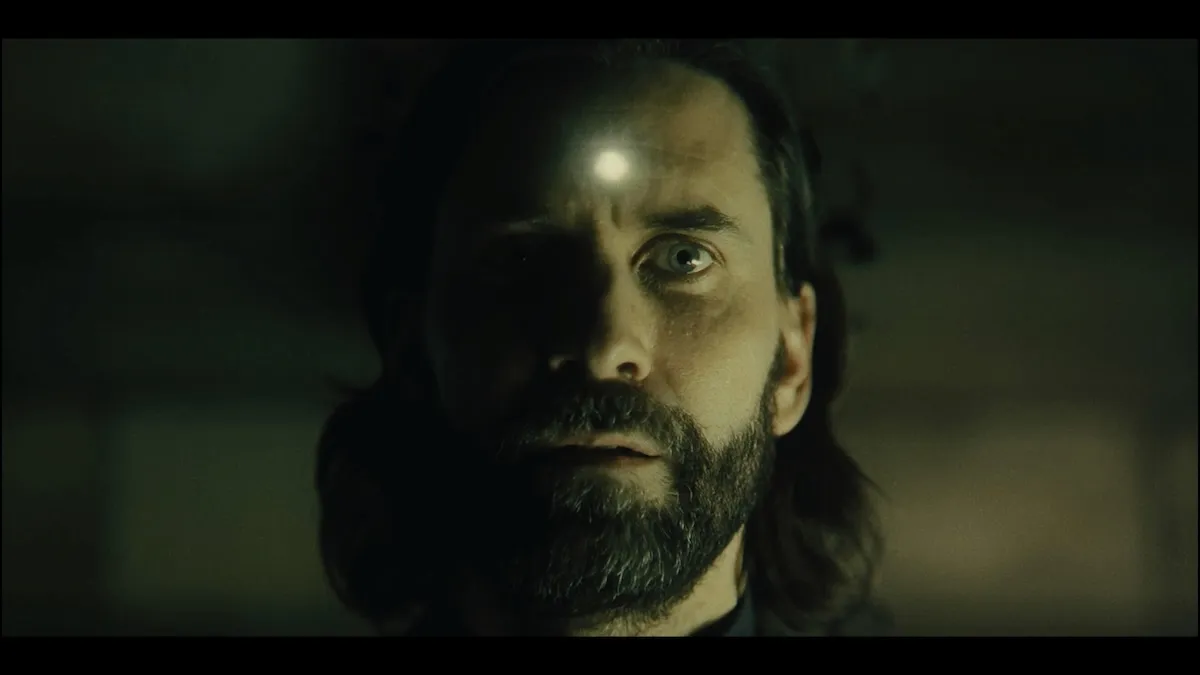What does it take for a game to be universally enjoyable? That’s the question most game developers would love to be able to answer, but it’s easier said than done. My guess is that it comes down to exploiting the medium for what it does best — utilizing multi-sensory connections to break down the barriers between the “real” world and the “game” world. If you look at the most popular game franchises in history — Call of Duty, Wii Sports, Angry Birds, Guitar Hero, etc. — you’ll see that each one broke down those barriers in ways that deeply resonated with people on a primal level.
Will Rhythm Heaven Fever resonate with the populace at large in that way? I think it’s possible. It definitely utilizes multi-sensory stimuli in ways that instantly make the player feel connected to the game world. It also comes packed with a kind of “Muppet cool” that historically appeals to kids, teenagers, adults, and just about everyone in between. It’s way too strange and unconventional to ever come off as insincere or uninspired, and it’s way too focused on blasting your brain with pure glee to be seen as anything but a whimsical delight.
Rhythm Heaven Fever (Wii)
Developer: Nintendo, TNX
Publisher: Nintendo
Released: February 13, 2012
MSRP: $29.99
Unlike other music games that try to simulate the physical act of playing an instrument, Rhythm Heaven Fever imparts onto the player how it feels to play music. Have you ever heard a musician say something like, “When I’m playing, sometimes I feel like I’m flying over the ocean at supersonic speeds, in the middle of a wrestling match with a giant flaming octopus, or making love to a beautiful, ethereal being while riding a cloud to heaven”? I sure have, but I’ve rarely seen a rhythm game take those emotions and try to directly express them to the player. That’s just the start of what makes the Rhythm Heaven series so special — it dares to give you a peek inside the emotional state of a truly passionate musician (in this case, that musician is Tsunku, the series’ musical director).
While this game doesn’t have any flaming octopi, it does feature a samurai battling a hoard of spectral demons, pets flying high above the ocean at supersonic speeds while playing badminton, an extremely aroused-sounding pair of cloud-riding wood elves, and plenty of strange times with a variety of enthusiastic simians. Rhythm Heaven Fever brings those kinds of surreal, intangible flights of fancy and interprets them literally, all while set to undeniably infectious beats.

With something that strange, you have to really work to make it all palatable. Rhythm Heaven Fever seems to know this and works extra hard to be accessible. The visuals are well-crafted yet extremely easy to digest in a manner of seconds, like a well-designed traffic sign. The music is also fairly simple yet very strong and comes in just about every style you could think of. It’s extremely expressive stuff, though never in a potentially offensive or annoying way.
The same goes for the sound effects. While they aren’t quite in the same spotlight as the visuals and soundtrack, they are just as important in the big picture. Every sound in the game has an undeniable “oomph” and were clearly chosen (along with the title’s multiple bizarre scenarios) for how much direct pleasure they can evoke from the player, not on how much sense they make. For example, you’ll have a grand old time helping three metal dummies “donk-donk” into each other in order to power their otherworldly space blimp. It’s fun in a way you that could never see coming — inexplicably bizarre yet undeniably satisfying.

The controls are also more fun than they probably deserve to be. Inputs don’t come much more simple than this — everything is triggered by either pressing A, pinching A and B together, or holding both then letting go at just the right time. It doesn’t require memorizing the layout of a three-plus button controller like the GBA Rhythm Heaven did, and it doesn’t require any really fine motor dexterity like the flick motions in the DS title. While Rhythm Heaven Fever can be extremely difficult at times, that difficulty is never due to the controls. If you fail at this game (and trust me, you will), it will always be due to your inability to keep the beat.
Playing through each regular stage is like learning one part of a longer, more complex song. After four regular stages, you play a “remix” stage that re-appropriates the four previous scenarios and fuses them together into an all all-new, full-length composition. While I really enjoy the individual stages, these remix levels are where the game really shines, as they test your ability to remain fluid and focused in even the most unpredictable sonic climates. Like any good videogame, Rhythm Heaven Fever gently but firmly teaches you how to play, gradually cultivating your level of skill so that, by the end, you can pull off feats of superhuman rhythm that you probably never thought were possible. That’s a goofy way of saying that the difficulty scaling in the game is just about perfect.

This largely comes from the surprisingly large variety of ways that the game sees fit to challenge the player’s internal beat. Sometimes the visuals are there to assist you in keeping the rhythm, but then they’ll suddenly flip the script on you, potentially throwing you off time and forcing you to really flex your internal metronome. Conversely, there will be times when the tempo changes radically, so you’ll need visual cues to help you stay on beat. In particularly tough stages, the visuals and the beat will alternate in throwing you off and hooking you back onto the beat, truly testing your capacity to follow the rhythm regardless of distraction and intimidation. That’s just the start of how the game will make you sweat.
Later on, the game starts layering auditory and visual cues, requiring you to keep track of two or more things at once. There are layers of book-wielding cheerleaders, layers of bouncing footballs, and even layers of adorably wiggling seals. They’ll force you to simultaneously think fast and think ahead, all while keeping your unwavering tempo alive. All of a sudden, the downbeats will change to upbeats, forcing you to appreciate the negative rhythmic space that you had previously worked to avoid.

Then there are the “Simon says” cues, anticipation cues, fake-out cues, and the sudden evacuation of all cues, making you rely on muscle memory and instinct. Once you get used to that, you’ll be tasked with switching from hitting A to pinching A and B together to letting go of your pinch at just the right time. Between all the visual, auditory, and tactile mix-ups, there is almost always a new challenge to experience in Rhythm Heaven Fever. I’ve played through the game twice already (once with the Japanese import and again with the English localization), and I still have trouble surviving some of the later stages.
As tough as the game can be, it still prioritizes the player’s joy over any focus on reaching an end state like a high score. Just like playing a real concert (and unlike other games like Guitar Hero or PaRappa the Rapper), you don’t instantly stop playing your tune after you make too many mistakes. No matter what, you’ll never be kicked out of the band mid-performance. Also like playing in a real band, you’ll never know exactly what the audience thinks of your playing. There are no in-game meters or other gauges to indicate how well you’re playing. You’ll only get a rating once a song is complete, after which you’ll be asked to play it again, be permitted to move on, or be praised with honors. What exactly you did right or did wrong is rarely spelled out for you, because as any musician who has tried to please an audience knows, the tastes of music fans is never that easy to read.

That’s pretty much everything there is to say about the main “campaign,” but there is a lot more to Rhythm Heaven Fever than that. There are tons of unlockables, most of which are all-new endless games that can be played for the rest of your life if you’re good enough. They’ll test not only your rhythmic skill but also your rhythmic endurance. I’m sure that you’ll find that, when it comes to keeping a beat, some of you are sprinters whereas others are long-distance runners, and finding out which of the two you are helps you to assess your musical strengths and weaknesses.
Then there are the two-player modes, a new addition to the series. The regular two-player levels are pretty fun, but there are conspicuously few of them. It wouldn’t have been that tough to make every level in the game playable for two, but instead, we get a fraction of that number. These levels also don’t challenge the players to do anything all that differently than what they do in the one-player mode. Thankfully, the endless two-player levels are really fun and truly test your ability to work in conjunction with one another to a beat. They are a unique experience in the Rhythm Heaven world, and I can only hope that the next game in the series has more of them.

Also on the downside, a few of the levels seem a little too similar to some from the GBA and DS titles to be considered continuations or tributes to those past experiences. If you haven’t played the handheld games before, this won’t be a problem for you, but if this is not your first Rhythm Heaven, you may feel a little annoyed that the robots-on-a-conveyor-belt stage is almost identical to one in the DS game. There are differences, however — instead of filling the robots with fluid, you now screw their heads on and make their E.T.-like hearts come to life.
As much as this stage may feel like a modified rerun, it’s undeniably still fun and arguably better than the one present in the DS title. The sound effects are more satisfying, the music is catchier, and the beat mix-ups are trickier. Later on, the stage is brought back for a second round, adding new visual twists to test your rhythm. Though not as fresh as the rest of the game, it’s still a surprisingly engaging and eye-opening experience.
Hmm, that didn’t really sound like much of a downer, did it? Let me try again.

Rhythm Heaven Fever is a relatively short game, but that’s like saying that the new three-hour CD box set you just purchased is “relatively short.” Just like with a new CD, it’s understood that this game was meant to be listened to (and played) over and over again. It will take most players many hours to get through the game once and much, much longer to unlock all of the the additional content, including four stages from the original GBA title and an endless mode that you can only unlock once you get perfects on each and every stage.
It may sound like a pain but it’s not. Even if I didn’t have any external motivation to play through these stages again, I’d still be sure to return to the game every few months, just like I pick up my favorite movie or CD every few months for a repeat experience. Rhythm Heaven Fever is the kind of game that may be “over” in less time than other AAA titles, but you’ll be singing the songs to yourself, be visualizing the scenarios in your mind, and be tempted to play them all again for many years to come.

Again, I failed to express a true downer. I’ll take one last crack at it.
Rhythm Heaven Fever lacks the option to play the game in Japanese. This will probably only bother people (like myself) who imported the Japanese title a while back and have grown to love its unique sound. The English localization is pretty great, though. Sometimes it’s slightly less expressive than the original, sometimes it’s slightly funnier and more involving due to the translation. Regardless of whether it hits high or hits low, it always hits pretty close to the target. Still, I imagine that whichever version you’re most familiar with will be the one you prefer.
There is also one endless level from the Japanese build that is missing, one about a weird Japanese standup comedy duo. These comedians are birds. One smacks the other in the face sometimes. I love that mini-game. It’s been swapped out for Mr. Upbeat, one of the more boring endless mini-games from the GBA title. That is an undeniable downer, but it’s still just one small missing thread in what is otherwise an excellently woven localization.

Just as I still sing classic Sesame Street songs to myself when I’m in a particularly good mood, or as I can watch old Terry Gilliam animations whenever I need a quick smile-inducing experience, I think I’ll be playing Rhythm Heaven Fever on a periodic basis for at least the next 30 years. Thirty bones is a steal for this level of high-quality fun. You’d have to be a completely foul-brained life hater to pass this one up.
Rhythm Heaven Fever offers the simplicity and elegance of “One Note Samba” or “Blister in the Sun,” the directness of the art of Mike Mignola or Pendleton Ward, and the understated but endlessly variable gameplay design of arcade titles like Pac-Man Champion Edition DX or Super Mario Bros. It’s one of my favorite games of this generation — a title that offers a much stronger education in game design and a more pure, direct, and genuine experience than most games on the market.
